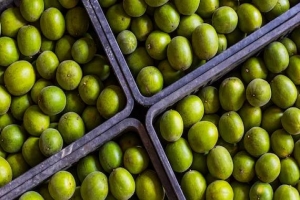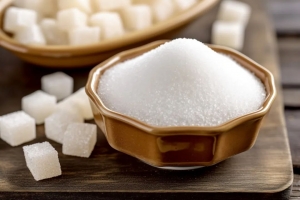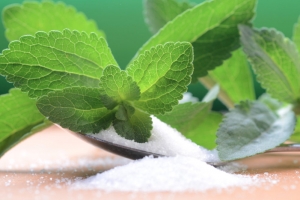When consumed with a meal, beverages flavored with low-calorie sweeteners have no more impact on overall calorie intake than drinking water, according to a French study.
The study, titled "Beverages containing low-calorie sweeteners have effects comparable to water on appetite, caloric intake, and food choices in healthy, non-obese French adults," was funded by Coca-Cola and the Brussels-based International Sweeteners Association, but the authors stated in the report that the sponsors had no role in the design, implementation, or data analysis of the study.
While many studies in the past have evaluated the success of beverages flavored with low-calorie sweeteners compared with those flavored with sugar, relatively few have compared the former with water — despite the fact that dietary habits in many countries favor water.
The randomized clinical trial enrolled 166 healthy, non-obese men and women who did not regularly consume sweeteners. The researchers tested the effects of low-calorie sweetened beverages and water on the subjects' total calorie intake over a nine-week period.
The subjects were each given Coca-Cola's Orange Power Zero, a caffeine-free, non-carbonated beverage sweetened with acesulfame potassium, aspartame, and sucralose.
Because previous studies have shown that sweeteners promote a preference for sweet tastes, leading to greater subsequent sugar intake, each participant in this study was provided with both a sweet and a salty drink.
no difference
Low-calorie sweeteners are a favored way for food and beverage manufacturers to reduce the sugar content of their products while maintaining similar sweetness and palatability. In the past, scientists have expressed concerns that because sweeteners provide a sweet taste without the calories, the body will compensate for the calorie deficit by stimulating appetite.
However, according to the study’s conclusions, there was no compensation for the “missing” calories. “The present results suggest that this is not the case in human consumers, at least not in the present context.” “No differences in energy or food intake were observed after the consumption of low-calorie sweetener beverages compared to mineral water.”
"The desire for sweet foods was not affected by acute or chronic exposure to low-calorie sweeteners. The current data suggest that exposure to low-calorie sweeteners does not increase motivation to desire sweet foods."
“Healthy men and women with infrequent exposure to low-calorie sweeteners did not change their total energy intake when they consumed low-calorie sweetened beverages with meals (3330 mL/day over 2 days).”

The study tested a wide range of nutrients – carbohydrates, fats and saturated fats, proteins, disaccharides and polysaccharides – and found “no difference” between the effects produced by the lemonade and water groups for most nutrients.
“However, in the laboratory, sugar (monosaccharide and disaccharide) intake was significantly reduced in both men and women,” the researchers added.
“In conclusion, the present results…support the view that low-calorie sweetener beverages do not increase total energy intake compared with water. Evidence suggests that replacing sugar with low-calorie sweeteners in nonobese adults leads to a reduction in appetite for sweet foods and sugars, suggesting a sensory-specific satiety response.”
The researchers said longer-term studies are needed to determine whether replacing sugary drinks with low-calorie sweeteners is more potentially beneficial than drinking water in terms of weight management.
 The regulation of Monk Fruit Extract (also known as Luo Han Guo extract) varies across different cou
The regulation of Monk Fruit Extract (also known as Luo Han Guo extract) varies across different cou
 Health Canada Approves Monk Fruit Extract as a Natural Sweetener
Health Canada Approves Monk Fruit Extract as a Natural Sweetener
 New Breakthrough in Allulose: A Healthier Sugar Alternative Gains Momentum
New Breakthrough in Allulose: A Healthier Sugar Alternative Gains Momentum
 Understanding Reb-M: The Benefits of a Next-Generation Sweetener
Understanding Reb-M: The Benefits of a Next-Generation Sweetener